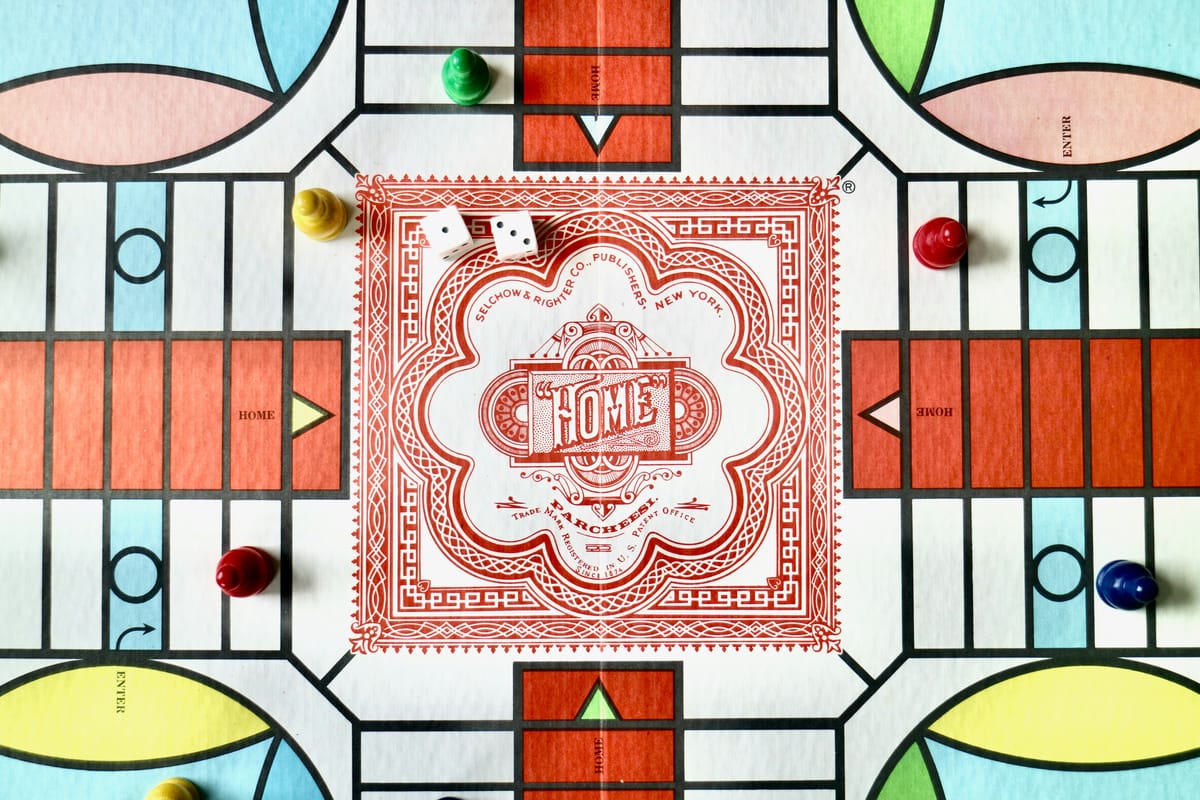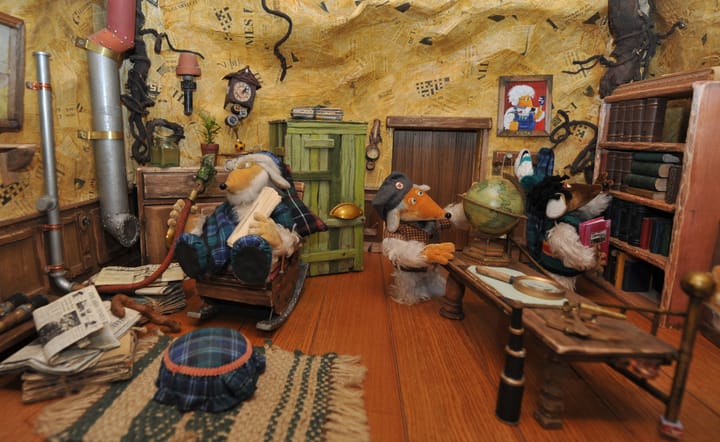Board Game Night: Harder to win than you'd think
I thew a "super casual board game night"—find out what I learned.

Find this post on Linkedin here.
I got a lot of board games for Christmas. White Elephants, grab bags, you name it—I was a board game magnet last December through no fault of my own.
Board games are interesting to me as a tool. They involve multiple people getting together, IRL, away from screens, to engage in a communal activity.
Organizing a game night should be a simple undertaking and an easy win, right?
Not so fast.
People have a lot of feelings when it comes to board games.
It's an incredibly complex and diverse world—one which is often dominated by people who are really into it—at the expense of folks who are more casual.
It might, in fact, work best as an add-on to an existing social gathering. Some of my favorite board game memories arose spontaneously.
In any case, from an experience design standpoint, making sure everyone is set up for success is much harder than it looks.
One of the first questions that comes to mind reveals some of the biggest challenges:
Which game?
As I mentioned, there are tons of board games that cover a vast array of different styles. Folks who are in the board game world have lingo to distinguish these.
When I described to my more board-game-savvy friend Eric that I wanted to host a board game night that was "casual, nothing crazy like Settlers of Catan" he pointed out that, among board game enthusiasts, Settlers was considered casual.
So immediately we have a language issue to overcome. Casual Board Game night became Super Casual Board Game Night.
That simple two-word question isn't done with us yet, though.
Deciding what to play is the hardest game to win
Even deciding what game to play can derail an entire evening. Everyone has a different disposition for different kinds of games. It's way too easy for one or several people to declare their disinterest and walk away, making the remaining players' jobs harder.
For one person to successfully champion the playing of a board game, they must be highly effective at knowing their audience and communicating with them.
Convincing someone to play a new game can be a minefield of discomfort and insecurity.
Whether they say them out loud or not, folks might be wondering:
What if I don't understand the rules?
What if I get beaten badly and embarrassed?
What if I look stupid?
Even games with a very low learning curve can be a tall order to get someone on board to play.
So how do we overcome all of this?
Here's what I'm thinking:
1 - Piggyback if you can
A board game-specific night might be a tough sell to non-board game people. If you have another social structure to build on, like a monthly brunch or a birthday party, it's easier to tack on a carefully selected game.
2 - Know your audience
As with many things, success lies at the intersection of what you want and what other people want. Think about who's attending (or who you want to attract) and pick a game you feel confident will appeal to them.
3 - Communicate
Open-ended decision-making should be avoided unless you feel confident your group can handle the process. Leadership here will help people feel secure and make it more likely they'll stick around to try.
If you approach your friends supremely confident that your chosen game is a fit for them, they'll be more likely to give you the benefit of the doubt.
4 - Pre-recruit
Among your guests should be people you know you can count on. It's always easier to convince someone to join you if you've already got a few other folks on board.
Note that this can backfire if you pre-recruit people who are known fans of board gaming and/or are perceived to be very smart. It's important to maintain a sense of parity.
5 - Take great care in explaining the rules
This is the trickiest part. Even seemingly simple games can feel enormously complex when you're just getting started.
As a host, your job is to make their journey to confidence a smooth one.
It's easy to get frustrated. Is everyone paying attention? Do you have to start over because someone joined late or got distracted? Is someone just not getting it? Do you need to change how you approach explaining it?
Of course, the better you understand the game yourself, the easier it will be for you to explain. Playing a new game no one's tried before is always a risky proposition.
6 - Keep it simple
Look for ways to adapt the game to maximize the chances people will have a good experience. If there are optional aspects of the game that make it more complicated, forgo them to start. Shepherding everyone through the process of learning and playing the game to completion is what's most important—once people are bought in, you can get more ambitious.
Board games can become traditions.
When social games become a regular thing, they inevitably lead to shared memories, inside jokes, and stories to recall for years to come. We bond over our shared experiences.
Board games harken back to a time when playing together was much more commonplace. It's a good thing to revive.
Okay Tony, but let's get down to the good stuff—what games do you recommend?
I'm so glad you asked.
My list is exclusively games that are easy to learn and relatively quick to play. By audience:
Family-friendly
- Sounds Fishy
- Heads Up
Friend group
- Apples to Apples
- Code Words
- Anomia
Math/engineering minds
- Set
Word nerds
- Bananagrams
Of course there are tons of good ones.
Do you have a regular board game tradition? I'm looking for stories!
PS - If you happen to be in the Norwalk area, I'm hosting Super Casual Board Game Night on March 26. Look out for an update some time after!
 Tony Bacigalupo
Tony Bacigalupo


